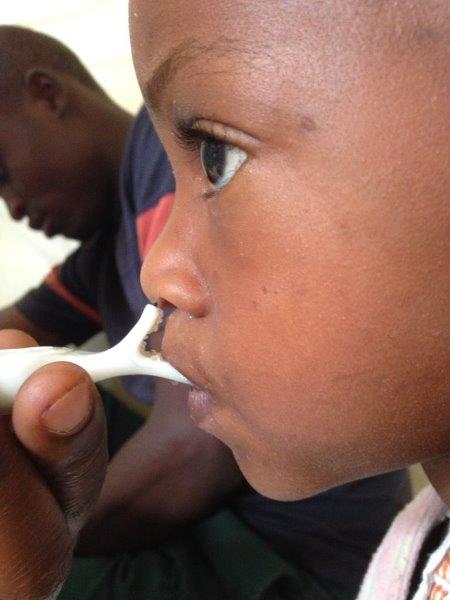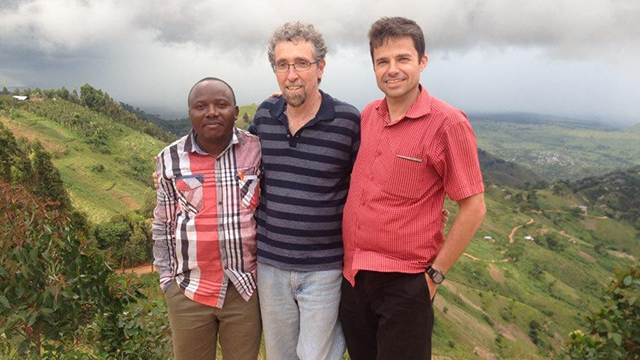
A child with a prototype Respimometer
Often very big problems have small solutions. Israel Amirav, a pediatric respirologist and associate professor of pediatrics, has created a handheld device that works to improve the health of children worldwide.
Pneumonia affects millions of children across the world with more than one million deaths annually. In places with limited access to health care services this treatable disease has a higher death rate.
In order to address this problem, Amirav has developed a device called aRespimometer. The thermometer-shaped device has two sensors, one that takes the patient's temperature and one under the nose that can count their breath. Another version will soon be able to measure oxygen saturation and heart rate as well.
Currently, the World Health Organization recommends counting breaths to diagnose pneumonia in children in areas where other diagnostic tools aren't available. This is very imprecise and can lead to misdiagnoses. Amirav's device is a simple and low-cost objective solution to get more clear diagnoses.
"They don't have x-rays, and they don't have blood tests, but children come in and they're coughing. How do we know to treat them with antibiotics or not?" says Amirav. "If we could diagnose with more certainty we can make sure the child gets the right treatment."
Amirav's Respimometer is turning heads internationally. He recently won the People's Choice Wild Card Competition at the Global Healthcare Innovations Academy. Initially developed by leading health care organizations in Switzerland, this event has grown into an international collaboration between Switzerland, Canada, and Hong Kong.
The goal of the competition is to provide a platform that allows entrepreneurs and health care professionals at any level with the encouragement and incentive to identify, nurture, and pioneer innovations in the health system.
This isn't Amirav's first successful innovation. He has created a child-friendly mask calledSootherMask to deliver aerosol treatments. The mask fits around the child's own soother and helps calm them as they receive aerosol medications like asthma inhalers or nebulizers. The mask is now marketed in London Drugs pharmacies and used in hospitals and clinics in Alberta.
Amirav is passionate about global health, which is what drives him to look for ways to make improvements. He has spent time visiting the Democratic Republic of Congo, and knows first-hand the struggle that physicians in low-resource communities are facing.

A local doctor, Israel Amirav and Michael Hawkes in the Democratic Republic of Congo
Although he's making steps to improve the treatment of pneumonia globally, he is looking to make an even greater impact. Amirav and his collaborator Michael Hawkes are part of a global Pneumonia Innovation Team. The University of Alberta is leading a worldwide prestigious collaboration (including Johns Hopkins University, Cape Town University, University of Queensland, Save the Children and other organizations and institutions) that has applied for the100&Change grant competition, which will award $100 million to a group that has a solution to eliminate a major world problem. The team believes they can eliminate childhood pneumonia deaths.
Stay tuned to FoMD news for more updates on the 100& Change competition as it progresses.